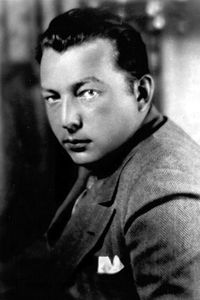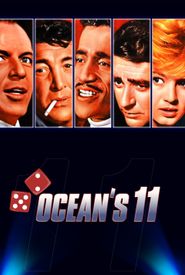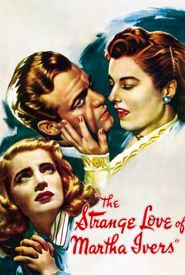Lewis Milestone, a clothing manufacturer's son, was born in Bessarabia, now Moldova, and raised in Odessa, Ukraine. He was educated in Belgium and Berlin, where he studied engineering and became fluent in both German and Russian. Milestone was an avid reader and had an affinity for the theater from an early age.
Starting as a prop man and background artist, Milestone traveled to the US in 1914 with $6.00 in his pocket. After a succession of odd jobs, including as a dishwasher and a photographer's assistant, he joined the Army Signal Corps in 1917 to make educational short films for U.S. troops. Following World War I, Milestone acquired American citizenship and went on to Hollywood to meet the director William A. Seiter at Ince Studios.
Seiter started Milestone off as an assistant cutter, and he quickly worked his way up the ranks to become editor, assistant director, and screenwriter on many of Seiter's projects in the early 1920s. This experience greatly influenced his directing style in years to come.
Milestone directed his first film, Seven Sinners, in 1925, for Howard Hughes, and two years later won his first of two Academy Awards for the comedy Two Arabian Knights. He received his second Oscar for what most regard as his finest achievement, the anti-war movie All Quiet on the Western Front, based on a novel by Erich Maria Remarque.
The film, universally praised by reviewers for its eloquence and integrity, also won the Best Picture Academy Award that year. Milestone's innovation was the use of cameras mounted on wooden tracks, giving his films a more realistic and fluid look. Other trademarks associated with his pictures were taut editing, snappy dialogue, and clever visual touches.
When asked in 1979 about the secret behind his success, Milestone simply declared, "Arrogance, chutzpah--in the old Hollywood at least that's the thing that gave everybody pause." Milestone had a history of being "difficult," having clashed with Howard Hughes, Warner Brothers, and a host of studio executives over various contractual and artistic issues.
Despite this, he remained constantly employed and worked for most of the major studios at one time or another, though never on long-term contracts. While he was not required to testify before HUAC, Milestone was blacklisted for a year in 1949 because of left-wing affiliations dating back to the 1930s.
Milestone's output became less consistent during the 1950s, and his career finished on a low with the remake of Mutiny on the Bounty in 1962 and its incongruously cast, equally headstrong star Marlon Brando.
Milestone must be credited with a quirky sense of humor: when the producer of "All Quiet on the Western Front," Carl Laemmle Jr., demanded a "happy ending" for the picture, Milestone telephoned, "I've got your happy ending. We'll let the Germans win the war."
Having suffered a stroke, Lewis Milestone spent the last ten years of his life confined to a wheelchair. He died September 25, 1980, at the University of California Medical Center in Los Angeles.










































